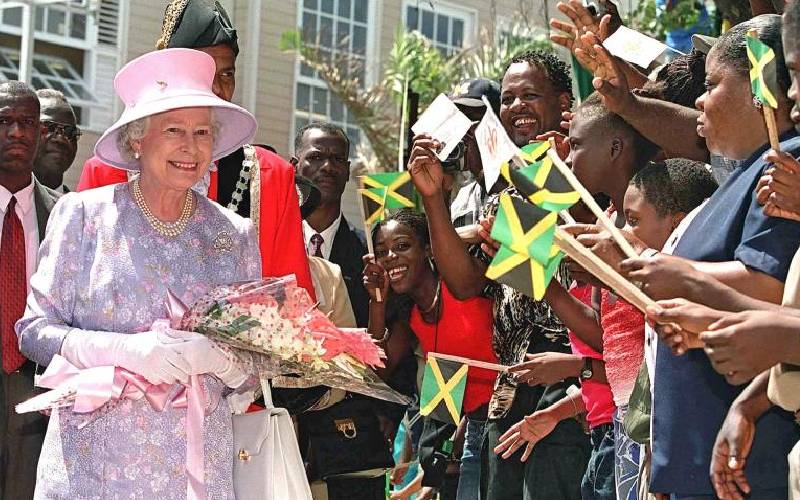×
The Standard e-Paper
Stay Informed, Even Offline

Queen Elizabeth against a backdrop of flags for Commonwealth Day. [Courtesy]
The modern Commonwealth of Nations is a troubled global organisation of 54 countries that struggles to be relevant by celebrating Commonwealth Day. Different from what its 19th and early 20th Centuries creators had in mind, it is largely a product of two conflicting forces about the future of the empire. One was on increasing decision making powers in the various parts of the empire or dominions.